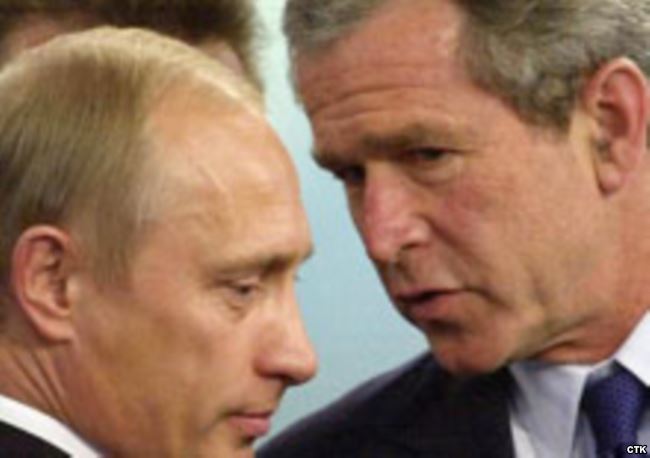(Polygraph.info) In an op-ed published on the English language website of the Russian state-owned outlet RT.com, John Wight, a regular RT contributor, argued that visiting the United States might give Russian leader Vladimir Putin the ability to “humanize it beyond the realm of geopolitical differences.
Wight drew a historical parallel with the 1962 Cuban Missile Crisis, when U.S. President John F. Kennedy and Soviet leader Nikita Khrushchev were able to reach an agreement that ended what often has been described as the most dangerous confrontation between the two superpowers during the Cold War.
“Indeed it is arguable that without his prolonged visit to the U.S. in 1959, Khrushchev may not have been so willing to accommodate JFK (the late-President John F. Kennedy) during the Cuban Missile Crisis three years later in 1962…” Wight said.
Mark Kramer, the director of the Russian and Eurasian program of Cold War Studies at Harvard University, called this assertion “nonsense.”
“The meeting Khrushchev had with Kennedy in Vienna in May 1961 left him with contempt for the U.S. president,” Kramer told Polygraph.info. “The notion that the meetings with [U.S. President Dwight D.] Eisenhower and others in October 1959 were the crucial factor in shaping Khrushchev’s behavior three years later is preposterous. What shaped Khrushchev’s behavior in October 1962 was the sudden realization that a large-scale nuclear exchange was a distinct possibility, the same realization that shaped Kennedy’s behavior in making important concessions to Khrushchev to resolve the crisis.”
[…] “Putin has been to the United States numerous times and has met with U.S. leaders elsewhere many other times. None of this has made him warm up to the United States, a country he deeply resents and wants to undermine,” Kramer told Polygraph.info
Read More © Polygraph.info











